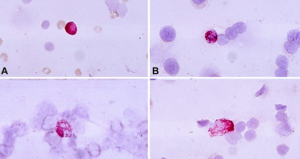A better treatment of patients with breast cancer is dependent upon an improved assessment of the individual risk of harboring minimal residual disease after the completion of the surgical treatment. The aim is to separate very low risk patients from high risk patients for future metastasis, in order to reduce overtreatment of early staged breast cancer patients. Also, there is need for better identification of high risk patients that do not respond to the standard systemic therapy, and who needs to test alternative treatment strategies. The project intends to approach these issues by – a continued detailed primary tumor analysis for selection of clinically relevant genes and gene-products, and a further detailed exploration and characterization of disseminated tumor cells (DTC) detected in the bone marrow (BM) (by array CGH, FISH, immunofluorescence, single cell sequencing), – within a population of 920 breast cancer patients with known clinical outcome status. Also, detection of circulating tumor cells (CTC) in blood with new promising techniques will be performed/continued. The results of the detailed primary tumor analyses and analysis of DTC/CTC (if present) will be correlated to disease recurrence.

Stained tumor cells (in red) from bone marrow. Naume et al, ClinCancerRes, 10:3091, 2004.
Selected papers:
- Tracing the origin of disseminated tumor cells in breast cancer using single-cell sequencing.
- Next-generation sequencing of disseminated tumor cells.
- Integrated molecular profiles of invasive breast tumors and ductal carcinoma in situ (DCIS) reveal differential vascular and interleukin signaling.
- Presence of bone marrow micrometastasis is associated with different recurrence risk within molecular subtypes of breast cancer.
- Detection of isolated tumor cells in bone marrow is an independent prognostic factor in breast cancer.
PI: Bjørn Naume, Oslo University Hospital. Email: bna(at)ous-hf.no.
















